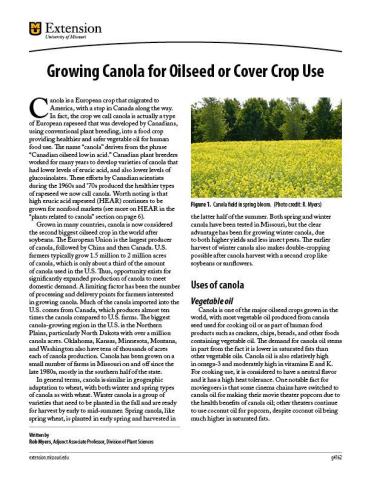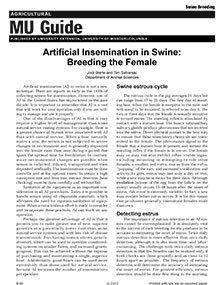

Artificial Insemination in Swine: Breeding the Female
Reviewed
The use of artificial insemination in the U.S has skyrocketed. Visit our website to view our Artificial Insemination in Swine: Breeding the Female article.
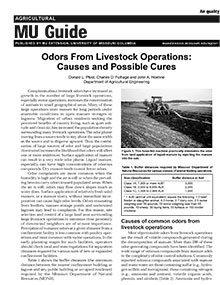
Odors From Livestock Operations: Causes and Possible Cures
Reviewed
Reduce livestock odors by managing manure storage, application methods, and using buffers to minimize odor impact.
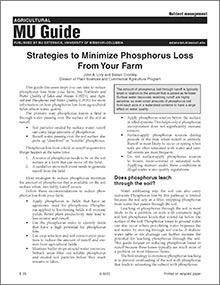
Strategies to Minimize Phosphorus Loss From Your Farm
Reviewed
This guide discusses steps you can take to reduce phosphorus loss from your farm.
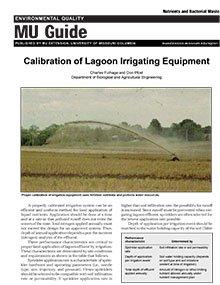
Calibration of Lagoon Irrigating Equipment
Reviewed
This publication provides guidelines for calibrating lagoon irrigation systems to ensure efficient nutrient application and prevent runoff.
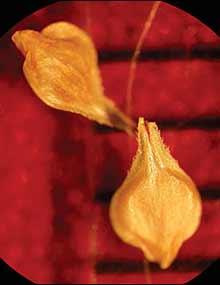
Missouri Weed Seeds, Page 21
Reviewed
Missouri is home to more than 200 species of sedges (Cyperaceae). Agronomically, yellow nutsedge, Cyperus esculentus, is considered to be the most problematic in prevalence of this family of plants.
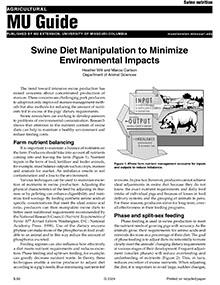
Swine Diet Manipulation to Minimize Environmental Impacts
Reviewed
Guidance on adjusting swine diets—phase feeding, enzyme use, synthetic amino acids—to reduce nutrient waste and lower environmental impacts.
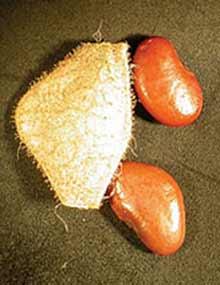
Missouri Weed Seeds, Page 24
Reviewed
Fabaceae (Pea family), the legume family, is one of the largest groups of broadleaf plants. Common members include clovers and various beans and peas.
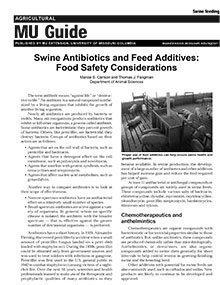
Antibiotics and Other Additives for Swine: Food Safety Considerations
Reviewed
Learn about antibiotics and additives in swine production, their benefits for growth and feed efficiency, and best practices for safe and effective use.
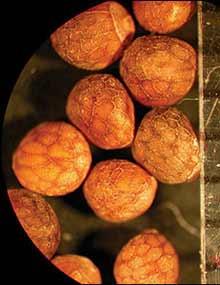
Missouri Weed Seeds, Page 27
Reviewed
Common members of Lamiaceae (Mint family) not shown in this guide are henbit and purple deadnettle, which are two of the most prevalent winter annuals in Missouri.
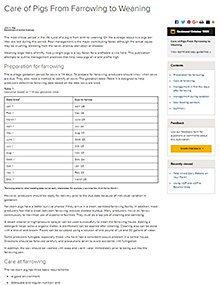
Care of Pigs From Farrowing to Weaning
Reviewed
The most critical period in the life cycle of a pig is from birth to weaning. Visit our website to learn about the Care of Pigs From Farrowing to Weaning.
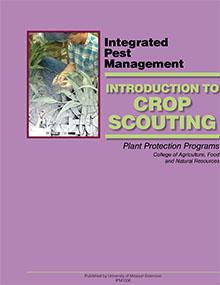
Introduction to Crop Scouting
Reviewed
Editor's note
The following abstract describes a publication that is available only as a downloadable PDF.
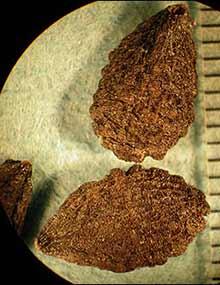
Missouri Weed Seeds, Page 30
Reviewed
Devil’s-claw, also known as unicorn plant, is the only known species of Martyniaceae (Unicorn-plant family) to be present in Missouri.
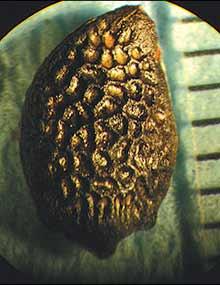
Missouri Weed Seeds, Page 33
Reviewed
Although about 18 genera of Passifloraceae (Passionflower family) are known, only one genus is known to be present in Missouri.
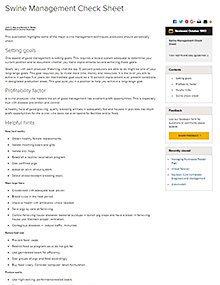
Swine Management Check Sheet
Reviewed
This publication provides a comprehensive checklist for swine producers, covering essential management practices from breeding to farrowing.
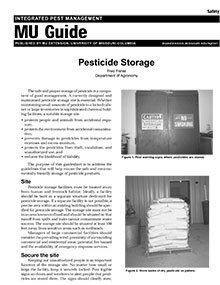
Pesticide Storage
Reviewed
Learn guidelines to ensure the safe and environmentally friendly storage of pesticides.
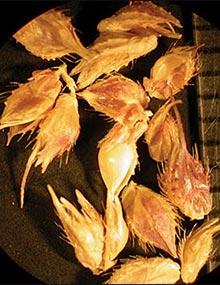
Missouri Weed Seeds, Page 36
Reviewed
About 270 species of Poaceae (Grass family), true grasses, are found in the state. Many species are economically important, including corn, wheat, sorghum, rye, fescue, oats, rice, barley and various millets.
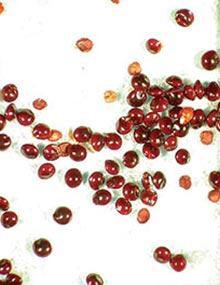
Missouri Weed Seeds, Page 04
Reviewed
In Missouri the amaranths (pigweeds) make up the vast majority of plant genera that occur within this family.
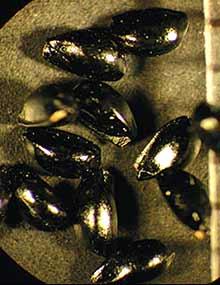
Missouri Weed Seeds, Page 39
Reviewed
Ranunculaceae (Buttercup family), a rather large group of plants, is best known for buttercups, of which there are nearly 20 species in Missouri. Clematis is another fairly common plant genus occurring in this family.

Missouri Weed Seeds, Page 07
Reviewed
The Dogbane family (Apocynaceae) has relatively few members that occur in Missouri.
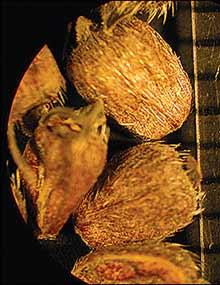
Missouri Weed Seeds, Page 42
Reviewed
Rubiaceae (Madder family) is a large family of plants with about 600 genera; there are about eight genera present in Missouri. The genus Galium is the largest in this state with at least 11 species, including a common winter annual, catchweed bedstraw.
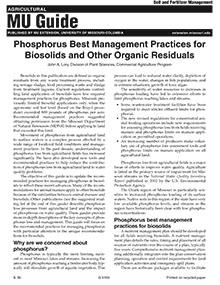
Phosphorus Best Management Practices for Biosolids and Other Organic Residuals
Reviewed
Learn practices to manage phosphorus in biosolids, minimize environmental impact, and protect water quality using updated nutrient management strategies.
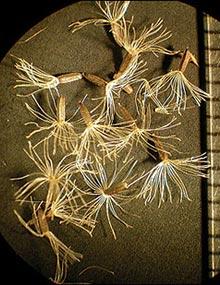
Missouri Weed Seeds, Page 10
Reviewed
Asteraceae, the aster family is the largest and most diverse family of broadleaf plants in Missouri. Its members include various species of goldenrod, sunflower and thistle.
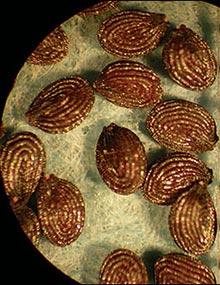
Missouri Weed Seeds, Page 13
Reviewed
Explore the Brassicaceae (Mustard) family, one of Missouri's largest plant groups, including common species like yellow rocket and wild mustard.
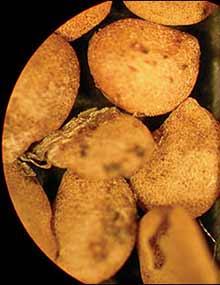
Missouri Weed Seeds, Page 45
Reviewed
This page details common weed species in Missouri's nightshade family, including seed images with millimeter rulers for scale.
